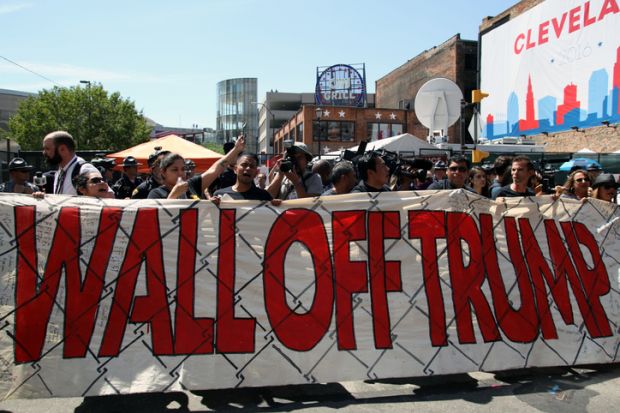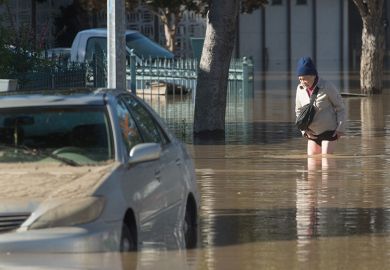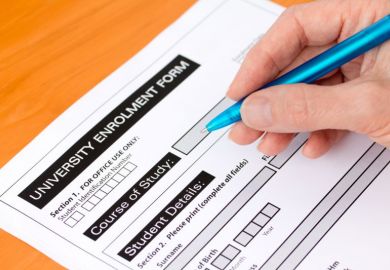One in three full professors at elite research universities in the US earned their undergraduate degree abroad, according to a new study.
The proportion of foreign-educated professors at leading institutions is even higher in some disciplines, such as maths.
According to the academic behind the research, the results suggest that in the political climate of Donald Trump’s presidency, US institutions might have difficulty maintaining the quality of their professoriate in the years ahead.
Tolga Yuret, associate professor of economics at Istanbul Technical University, collected data on the education of more than 14,000 full professors from 48 of the top universities in the US, as defined by the Shanghai Academic Ranking of World Universities.
He found that 34.5 per cent of the group have foreign undergraduate degrees and 12.5 per cent obtained their doctorates outside the US.
Just under a quarter of the professors had undergraduate degrees awarded by Chinese or Indian universities. The UK, Canada and Russia are also among the top five countries supplying undergraduate degrees to US professors, according to the research.
Dr Yuret told Times Higher Education that a sizeable portion of the elite academics received their undergraduate degrees in Turkey, Iran or Egypt, which are predominantly Muslim countries.
“The anti-immigration sentiment that is prevalent in US politics today is likely to decrease the number of elite academics with foreign degrees who want to work in the US,” he said.
“US universities will have a hard time to maintain their faculty quality in the near future,” he added.
In his paper, Dr Yuret also looks at the subject areas in which foreign-educated professors work. Natural science and engineering departments have a larger proportion of foreign-educated academics than social science and humanities departments, he writes in the article published in the Journal of Informetrics.
Half of all maths professors obtained their undergraduate degrees outside the US, but for chemistry, the proportion is one-quarter. Professors in economics are more than three times more likely to have foreign undergraduate degrees than their peers in political science and sociology, Dr Yuret adds.
There is no significant difference between the ratio of foreign-educated academics in public and in private universities.
Register to continue
Why register?
- Registration is free and only takes a moment
- Once registered, you can read 3 articles a month
- Sign up for our newsletter
Subscribe
Or subscribe for unlimited access to:
- Unlimited access to news, views, insights & reviews
- Digital editions
- Digital access to THE’s university and college rankings analysis
Already registered or a current subscriber?








